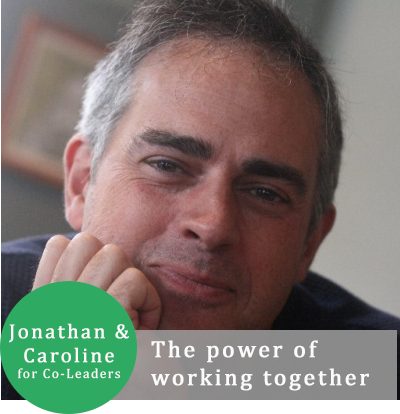Bartley claims electoral pact with Labour still possible
Jonathan Bartley has responded to Jeremy Corbyn’s apparent rejection of an electoral pact between Labour and the Greens by saying that Corbyn’s words were “dissapointing” but that an electoral pact was still very much possible.
When Corbyn was asked recently for his views on an electoral pact in Brighton, he said: ““At the moment no. What we are doing as a party committed to the Labour cause and position, in opposition in parliament in order to maximise votes against the government, obviously we cooperate with other opposition parties. Does this translate into electoral pacts? No.”
Bartley replied by telling Bright Green:
“A progressive alliance would be about winning in a handful of marginal Tory held seats around the country, not any one specific area. It would happen at the next general election and it would be up to local parties to decide whether to work together to do this. In the last few weeks we’ve seen a real shift in support for one of the fundamental building blocks for any kind of alliance; electoral reform. At this stage Jeremy didn’t commit to exploring the idea, which is disappointing. The combination of a public demanding a different kind of politics and the bleak electoral prospects for Labour mean that this will no doubt be revisited.”
Bartley is running for leader of the Green Party of England and Wales on a joint ticket with Caroline Lucas, who has been the main Green driving force behind the idea of an electoral pact with Labour, the Liberal Democrats and Plaid Cymru.





Debating with his leadership challenger, Owen Smith, in Glasgow on Thursday night, Corbyn said he did not support a progressive alliance, arguing that Labour was “different from any other party” and growing very quickly on its own. “I’m hopeful because more and more people in the Labour party are recognising that, no matter who their leader is, they’re very unlikely to form an outright majority government in the next election, with what’s happening with the constituency boundary changes,” Lucas said. “Once you’ve got a Labour party in whose interests electoral reform is, then obviously that’s a gamechanger.
Mr Corbyn’s position soften a bit in 2019 if his party is still 12 points behind the Tories. Nothing concentrates the mind like the prospect of imminent (political) hanging.
Electoral pacts are not necessarily a good idea, except to remove/replace a previously elected (under FPTP rules) government. It is better that parties, post a PR election, work and then vote together on specific issues. This is politics in most of Europe – and although not perfect – better decisions are made.
also there is the moral argument if you live in a working class town or city in northern england the idea and look at the record of there councils (and im not just talking about arguments of whether to refuse to set budgets or not but what they actually do with the powers money they have) then i could nt morrally vote labour now convincing the electorate of that from the left is another matter, but still we got to contest these councils whether ukip or the torys win the odd seat or not as otherwise democracy is dead.
My online research has revealed otherwise (that a lot of Green supporters/members do not think such a pact is possible even if they wanted it).
Also, it is not worth pursuing a pact that will leave us worse off, especially when Labour’s NEC pulls tricks like this: http://www.thecanary.co/2016/08/02/labour-purges-thousands-voters-leadership-election-pours-salt-open-wound/
There is a rather naive idea that if we just work more formally with other ‘progressive’ parties (I’m not convinced Labour is one) that the electorate will rush towards us to oust the Tories, but I have yet to see any evidence that this is true. If anything they might rush away from us if we are too closely identified with a shambolic Labour Party.
Labour are a sinking ship and I, for one, have no desire to climb on board